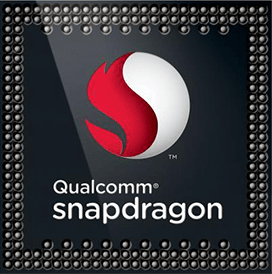
Qualcomm Snapdragon 860 Benchmark, Test and specs
Last updated:
The Qualcomm Snapdragon 860 has 8 CPU cores and can process 8 threads at the same time. The processor was presented in Q1/2021 and is based on the 6. Generation of the Qualcomm Snapdragon series. In the Geekbench 5 benchmark, the Qualcomm Snapdragon 860 achieved a result of 733 points (single-core) or 2,698 points (multi-core).

| Name: | Qualcomm Snapdragon 860 |
|---|---|
| Family: | Qualcomm Snapdragon (102) |
| CPU group: | Qualcomm Snapdragon 855/860 (3) |
| Architecture: | Kryo 485 |
| Segment: | Mobile |
| Generation: | 6 |
| Predecessor: | Qualcomm Snapdragon 855 Plus |
| Successor: | -- |
CPU Cores and Base Frequency
The Qualcomm Snapdragon 860 has 8 cores. The clock frequency of the Qualcomm Snapdragon 860 is 2.96 GHz. An initial performance assessment can be made using the number of CPU cores.
| CPU Cores / Threads: | 8 / 8 |
|---|---|
| Core architecture: | hybrid (Prime / big.LITTLE) |
| A-Core: | 1x Kryo 485 Prime |
| B-Core: | 3x Kryo 485 Gold |
| C-Core: | 4x Kryo 485 Silver |
| Hyperthreading / SMT: | No |
|---|---|
| Overclocking: | No |
| A-Core Frequency: | 2.96 GHz |
| B-Core Frequency: | 2.42 GHz |
| C-Core Frequency: | 1.80 GHz |
Artificial Intelligence and Machine Learning
Processors with the support of artificial intelligence (AI) and machine learning (ML) can process many calculations, especially audio, image and video processing, much faster than classic processors. Algorithms for ML improve their performance the more data they have collected via software. ML tasks can be processed up to 10,000 times faster than with a classic processor.
| AI hardware: | Qualcomm AI engine |
|---|---|
| AI specifications: | Hexagon 690 @ 7 TOPS |
Internal Graphics
The Qualcomm Snapdragon 860 has an integrated graphics that the system can use to efficiently play back videos. The Qualcomm Snapdragon 860 has the Qualcomm Adreno 640 installed, which has 4 streaming multiprocessors (384 shaders).
| GPU name: | Qualcomm Adreno 640 |
|---|---|
| GPU frequency: | 0.25 GHz |
| GPU (Turbo): | 0.68 GHz |
| Compute units: | 4 |
| Shader: | 384 |
| Hardware Raytracing: | No |
| Release date: | Q1/2019 |
| Max. displays: | 1 |
|---|---|
| Generation: | 5 |
| Direct X: | 12.0 |
| Technology: | 7 nm |
| Max. GPU Memory: | 4 GB |
| Frame Generation: | No |
Hardware codec support
Processors with integrated graphics can process video codecs faster. Support for modern codecs can significantly increase system efficiency during video playback.
| h265 / HEVC (8 bit): | Decode / Encode |
|---|---|
| h265 / HEVC (10 bit): | Decode / Encode |
| h264: | Decode / Encode |
| VP8: | Decode / Encode |
| VP9: | Decode / Encode |
| AV1: | No |
|---|---|
| AVC: | No |
| VC-1: | No |
| JPEG: | No |
Memory & PCIeThe Qualcomm Snapdragon 860 supports a maximum of 16 GB memory. Depending on the mainboard, the processor can use a maximum of 4 (Quad Channel) memory channels. This results in a maximum bandwidth of the main memory of 34.1 GB/s. |
|
| Memory type: | Memory bandwidth: |
|---|---|
| LPDDR4X-4266 | 34.1 GB/s |
| Max. Memory: | 16 GB |
| Memory channels: | 4 (Quad Channel) |
| ECC: | No |
| PCIe: | |
| PCIe Bandwidth: | -- |
Thermal ManagementThe Qualcomm Snapdragon 860 has a TDP of . Based on the TDP, the system manufacturer can and must adapt the cooling solution to the processor. |
|
|---|---|
| TDP (PL1 / PBP): | |
| TDP (PL2): | -- |
| TDP up: | -- |
| TDP down: | -- |
| Tjunction max.: | -- |
Technical details
Modern production reduces the waste heat of a processor and increases its efficiency. The Qualcomm Snapdragon 860 is made in 7 nm and has 5.00 MB cache.
| Technology: | 7 nm |
|---|---|
| Chip design: | Chiplet |
| Socket: | -- |
| L2-Cache: | 2.00 MB |
| L3-Cache: | 3.00 MB |
| AES-NI: | No |
| Operating systems: | Android |
| Virtualization: | None |
|---|---|
| Instruction set (ISA): | Armv8-A (64 bit) |
| ISA extensions: | -- |
| Release date: | Q1/2021 |
| Release price: | -- |
| Part Number: | SM8150-AC |
| Documents: | Technical data sheet |
Rate this processor
Benchmark results

The benchmark results for the Qualcomm Snapdragon 860 have been carefully checked by us. We only publish benchmark results that have been created by us or that have been submitted by a visitor and then checked by a team member. All results are based on and fullfill our benchmark guidelines.
Geekbench 5, 64bit (Single-Core)
Geekbench 5 is a cross plattform benchmark that heavily uses the systems memory. A fast memory will push the result a lot. The single-core test only uses one CPU core, the amount of cores or hyperthreading ability doesn't count.

|
Intel Pentium G3430
2C 2T @ 3.30 GHz |
||

|
Intel Pentium G3440
2C 2T @ 3.30 GHz |
||

|
AMD Ryzen 7 2800H
4C 8T @ 3.80 GHz |
||
|
|
Qualcomm Snapdragon 860
8C 8T @ 2.96 GHz |
||

|
Intel Core i7-2960XM
4C 8T @ 3.70 GHz |
||

|
Intel Core M-5Y71
2C 4T @ 2.90 GHz |
||

|
MediaTek Dimensity 1080
8C 8T @ 2.60 GHz |
||
Geekbench 5, 64bit (Multi-Core)
Geekbench 5 is a cross plattform benchmark that heavily uses the systems memory. A fast memory will push the result a lot. The multi-core test involves all CPU cores and taks a big advantage of hyperthreading.

|
Intel Core i5-6400
4C 4T @ 3.00 GHz |
||

|
Qualcomm QCM6490
8C 8T @ 2.71 GHz |
||

|
Intel Core i3-8100T
4C 4T @ 3.10 GHz |
||
|
|
Qualcomm Snapdragon 860
8C 8T @ 2.96 GHz |
||

|
Intel Core i7-4701EQ
4C 8T @ 3.00 GHz |
||

|
Intel Core i7-4700EQ
4C 8T @ 3.00 GHz |
||

|
Intel Core i7-4700MQ
4C 8T @ 3.00 GHz |
||
Geekbench 6 (Single-Core)
Geekbench 6 is a benchmark for modern computers, notebooks and smartphones. What is new is an optimized utilization of newer CPU architectures, e.g. based on the big.LITTLE concept and combining CPU cores of different sizes. The single-core benchmark only evaluates the performance of the fastest CPU core, the number of CPU cores in a processor is irrelevant here.

|
Intel Core i5-4670K
4C 4T @ 3.80 GHz |
||

|
Intel Core i5-4308U
2C 4T @ 3.30 GHz |
||

|
Intel Core i5-4430S
4C 4T @ 3.20 GHz |
||
|
|
Qualcomm Snapdragon 860
8C 8T @ 2.96 GHz |
||

|
AMD Ryzen 3 3350U
4C 4T @ 3.50 GHz |
||

|
AMD Ryzen 3 PRO 3300U
4C 4T @ 3.50 GHz |
||

|
Intel Core i5-5257U
2C 4T @ 3.10 GHz |
||
Geekbench 6 (Multi-Core)
Geekbench 6 is a benchmark for modern computers, notebooks and smartphones. What is new is an optimized utilization of newer CPU architectures, e.g. based on the big.LITTLE concept and combining CPU cores of different sizes. The multi-core benchmark evaluates the performance of all of the processor's CPU cores. Virtual thread improvements such as AMD SMT or Intel's Hyper-Threading have a positive impact on the benchmark result.

|
Intel Core i7-5700EQ
4C 8T @ 2.60 GHz |
||

|
Samsung Exynos 990
8C 8T @ 2.73 GHz |
||

|
Intel Core i7-7660U
2C 4T @ 3.80 GHz |
||
|
|
Qualcomm Snapdragon 860
8C 8T @ 2.96 GHz |
||

|
Intel Core i7-3920XM
4C 8T @ 2.90 GHz |
||

|
MediaTek Dimensity 7200
8C 8T @ 2.80 GHz |
||

|
AMD Athlon Gold 7220U
2C 4T @ 3.00 GHz |
||
iGPU - FP32 Performance (Single-precision GFLOPS)
The theoretical computing performance of the internal graphics unit of the processor with simple accuracy (32 bit) in GFLOPS. GFLOPS indicates how many billion floating point operations the iGPU can perform per second.

|
Intel Core i5-1030G7
Intel Iris Plus Graphics G7 @ 1.05 GHz |
||

|
Intel Core i5-1030NG7
Intel Iris Plus Graphics G7 @ 1.05 GHz |
||

|
Intel Core i5-1035G7
Intel Iris Plus Graphics G7 @ 1.05 GHz |
||
|
|
Qualcomm Snapdragon 860
Qualcomm Adreno 640 @ 0.68 GHz |
||

|
Qualcomm Snapdragon 855 Plus
Qualcomm Adreno 640 @ 0.68 GHz |
||

|
Intel Core i5-6350HQ
Intel Iris Pro Graphics 580 @ 0.90 GHz |
||

|
Apple A12X Bionic
Apple A12X @ 1.13 GHz |
||
AnTuTu 9 Benchmark
The AnTuTu 9 benchmark is very well suited to measuring the performance of a smartphone. AnTuTu 9 is quite heavy on 3D graphics and can now also use the "Metal" graphics interface. In AnTuTu, memory and UX (user experience) are also tested by simulating browser and app usage. AnTuTu version 9 can compare any ARM CPU running on Android or iOS. Devices may not be directly comparable when benchmarked on different operating systems.
In the AnTuTu 9 benchmark, the single-core performance of a processor is only slightly weighted. The rating is made up of the multi-core performance of the processor, the speed of the working memory, and the performance of the internal graphics.
In the AnTuTu 9 benchmark, the single-core performance of a processor is only slightly weighted. The rating is made up of the multi-core performance of the processor, the speed of the working memory, and the performance of the internal graphics.

|
Qualcomm Snapdragon 778G+
8C 8T @ 2.50 GHz |
||

|
Qualcomm Snapdragon 855 Plus
8C 8T @ 2.96 GHz |
||
|
|
HiSilicon Kirin 990 5G
8C 8T @ 2.86 GHz |
||
|
|
Qualcomm Snapdragon 860
8C 8T @ 2.96 GHz |
||

|
Qualcomm Snapdragon 7 Gen 1
6C 6T @ 2.40 GHz |
||

|
Samsung Exynos 1380
8C 8T @ 2.40 GHz |
||

|
MediaTek Dimensity 7030
8C 8T @ 2.50 GHz |
||
AnTuTu 8 Benchmark
The AnTuTu 8 Benchmark measures the performance of a SoC. AnTuTu benchmarks the CPU, GPU, Memory as well as the UX (User Experience) by simulating browser and app usage. AnTuTu can benchmark any ARM CPU that runs under Android or iOS. Devices may not be directly compareable if the benchmark has been performed under different operating systems.
In the AnTuTu 8 benchmark, the single-core performance of a processor is only slightly weighted. The evaluation consists of the multi-core performance of the processor, the speed of the RAM and the performance of the internal graphics.
In the AnTuTu 8 benchmark, the single-core performance of a processor is only slightly weighted. The evaluation consists of the multi-core performance of the processor, the speed of the RAM and the performance of the internal graphics.

|
Google Tensor
8C 8T @ 2.80 GHz |
||

|
Samsung Exynos 2100
8C 8T @ 2.90 GHz |
||

|
Qualcomm Snapdragon 865
8C 8T @ 2.84 GHz |
||
|
|
Qualcomm Snapdragon 860
8C 8T @ 2.96 GHz |
||

|
Apple A13 Bionic
6C 6T @ 2.65 GHz |
||

|
Qualcomm Snapdragon 778G
8C 8T @ 2.40 GHz |
||

|
Samsung Exynos 990
8C 8T @ 2.73 GHz |
||
Performance for Artificial Intelligence (AI) and Machine Learning (ML)
Processors with the support of artificial intelligence (AI) and machine learning (ML) can process many calculations, especially audio, image and video processing, much faster than classic processors. The performance is given in the number (trillions) of arithmetic operations per second (TOPS).

|
AMD Ryzen 5 7640HS
6C 12T @ 4.30 GHz |
||

|
AMD Ryzen 7 7840HS
8C 16T @ 3.80 GHz |
||

|
AMD Ryzen 9 7940HS
8C 16T @ 4.00 GHz |
||
|
|
Qualcomm Snapdragon 860
8C 8T @ 2.96 GHz |
||

|
Qualcomm Snapdragon 8cx Gen. 2
8C 8T @ 3.15 GHz |
||

|
Qualcomm Snapdragon 8c
8C 8T @ 2.45 GHz |
||

|
Qualcomm Snapdragon 855 Plus
8C 8T @ 2.96 GHz |
||
Benchmarks

Geekbench 5 (SC)
2,488 entries
2,488 entries

Geekbench 5 (MC)
2,461 entries
2,461 entries

Geekbench 6 (SC)
1,755 entries
1,755 entries

Geekbench 6 (MC)
1,703 entries
1,703 entries

FP32 SP (iGPU)
2,042 entries
2,042 entries

AnTuTu 9 Benchmark
90 entries
90 entries

AnTuTu 8 Benchmark
118 entries
118 entries

AI / ML Performance
119 entries
119 entries
Popular comparisons
back to index






